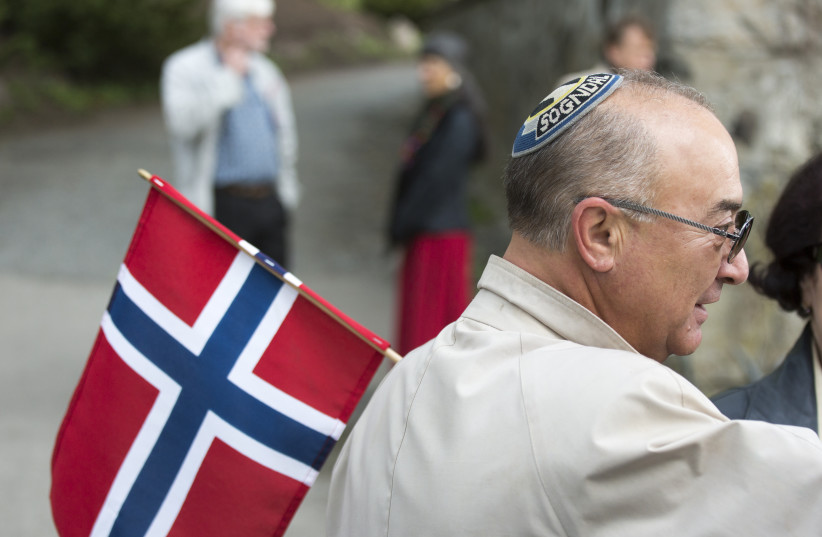This week, eighty years ago, 529 Jewish men, women and children were rounded up in Oslo, Norway, and placed on the MS Donau deportation ship to take them to Auschwitz-Birkenau concentration camp. November 26, 1942, remains one of the darkest days in the history of Norway.
Norway has a small Jewish population, but the Holocaust was just as devastating there as in the rest of Europe. In total, 773 Jews in Norway were deported during the Second World War. Only 34 survived. This traumatic experience has left its mark on our nation and will never be forgotten.
Norway continues to find ways to keep the memory of the victims alive. Just these last few months, several different ways of remembering the Holocaust have received considerable attention in Norway.
Memorial cobblestones
Since 2010 German artist Gunter Demnig has placed memorial cobblestones (in Norwegian “snublesteiner”, stumbling stones) in memory of Jewish victims of the Holocaust across Europe. Outside every house where every single victim lived, a memorial cobblestone is placed into the ground, with one stone for each person.
As of the beginning of September this year, Norway became the first country to complete the memorial project by placing the last cobblestone in the streets of Oslo, close to where the MS Donau deportation ship left harbor that fatal day 80 years ago.

The cobblestones, spread across the country, serve as a daily reminder to passersby of the horrific fate close to 40% of Jews in Norway suffered during the war. The website www.snublestein.no has a picture of every single cobblestone and tells the story of every single victim.
From the last placed gold-plated cobblestone we can learn that Ernst Josef Adler was born in 1910, deported to Auschwitz in 1942 and killed March 1943. What it does not tell us is that Adler’s twin brother, Felix, was able to flee to neighboring Sweden and survived the Holocaust. Sweden ended up becoming a safe haven for around 60% of the over 2000 Jews living in Norway during the war.
New TV series
In Oslo Harbor’s protocol from the devastating November day in 1942, one can read the following: “Cargo: Jews”. This inhumane inscription has given name to a newly released six-part TV-documentary series on the Norwegian state broadcaster NRK (“Last: jøder” in Norwegian) about the history of Jews in Norway during the war. The series has received very good reviews.
Throughout the episodes, we learn firsthand from survivors about their experiences from before the war started,to the German invasion of Norway on April 9, 1940, and the five years that followed until Liberation Day on May 8, 1945, and the subsequent return of Jewish refugees.
Film to Israel
November 26, 1942, is also the focus of Norwegian film director Eirik Svensson’s 2020 depiction of Holocaust in Norway titled Betrayed (Den største forbrytelsen in Norwegian). Through the film, which is based on a true story, we follow the Jewish Braude family’s experience from the outset of the war. As with every other Jew in Norway, they are required to get their ID cards stamped with a “J” which led the Nazi regime, supported and aided by Norwegian police, to know who to round up to be sent to national detention camps before being continuing to concentration camps in Germany and Poland.
For those who want to learn more about Holocaust in Norway and the Braude family’s fate, the director, Svensson, will be traveling to Israel to present his movie on December 4 as part of the Nordic Cinema Showcase at the Herzliya Cinematheque.
New ways of remembering the past
At a large event at Oslo City Hall just a few days ago, Norway’s Prime Minister Jonas Gahr Store stated that we all have a responsibility to remember what happened to the Norwegian Jews before, during and after the Second World War.
That is why the Norwegian Parliament established The Norwegian Center for Holocaust Studies in 2001, a research and education center focusing on the Holocaust, other genocides, extremism, antisemitism and the situation of minorities in contemporary societies. In various ways, the center keeps reminding Norwegians about the events in November 1942.
Eighty years on, Norway remains committed to never forgetting the stories of individual Jews and their Holocaust experience.
Thankfully, the above-mentioned examples help us remember our past. Learning from our past will help us continue to fight for religious freedom and combat antisemitism.
The writer is Norway’s ambassador to Israel.
